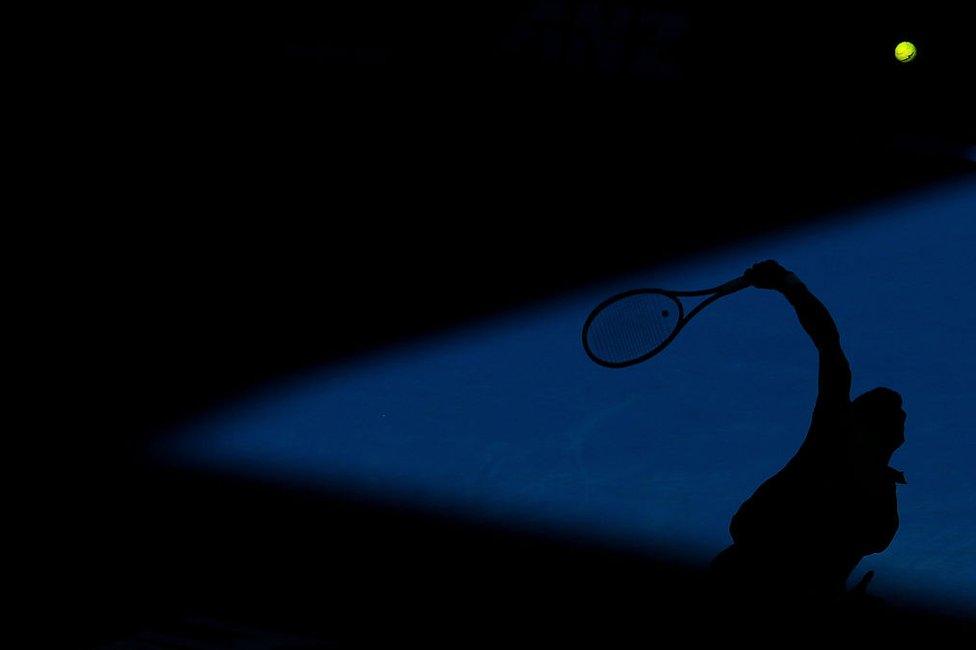Courtside gambling ads dumped from Australian Open
- Published

Tennis Australia has faced pressure to remove bookmaker ads
Controversial courtside ads for UK bookmaker William Hill have been dumped from next month's Australian Open tennis tournament.
Tennis Australia confirmed on Friday it would no longer offer "on-court signage" to the betting agency.
The ads were criticised in January after the BBC and BuzzFeed revealed evidence of widespread match-fixing at the top level of world tennis.
William Hill was not implicated in the match-fixing allegations.
However, the scandal renewed criticism of the betting agency's deal in 2015 to become the Australian Open's "official betting partner".
Anti-gambling campaigners said the agreement represented a problematic deepening of ties between large bookmakers and the sport.
Richard Heaselgrave, a Tennis Australia executive, confirmed the advertisements had been cut.
"We have discussions with all our partners each year to amend their rights and benefits," he told the BBC. "William Hill won't have on-court signage for 2017."
Senator Nick Xenophon, who previously called for Tennis Australia to cut its "unprecedented ties" with the bookmaker, expressed cautious optimism about the decision.
"It's a welcome step provided there's no sting in the tale," the anti-gambling politician told the BBC.
"Ultimately I want to see an end to all gambling sponsorship at sporting events because so many children are exposed to it."

More than 700,000 people attended the Australian Open in 2016
Australia has the world's highest gambling loss per head, according to UK consultancy H2 Gambling Capital, with Australians losing an average of A$1500 (£900; $1130) a year.
Dr Sally Gainsbury, from the University of Sydney, said the increase in gambling promotions at major sporting events was a concern for the community.
"Sports betters are more likely to say they are influenced by advertisers... because they have more difficulty controlling themselves," she said.
"The other concerns we have in relation to these sporting events is the exposure and normalisation of gambling behaviour to a wide population."
"That's what we're really concerned about, the next-generation effect, where young people might grow up thinking that betting is just a normal part of watching sport."
William Hill has been contacted for comment.
Inside the brain of a gambling addict
Reporting by the BBC's Greg Dunlop
- Published31 October 2016
